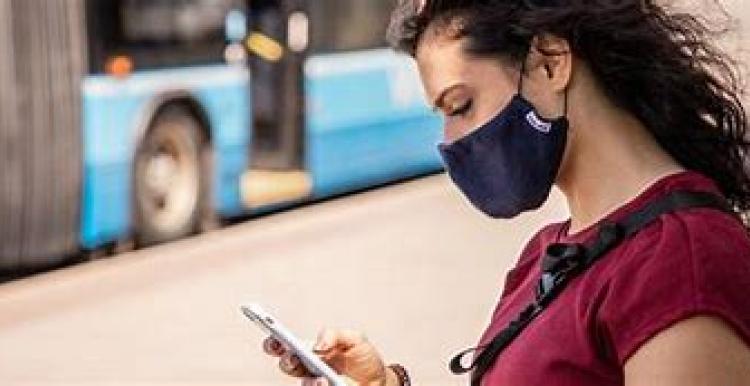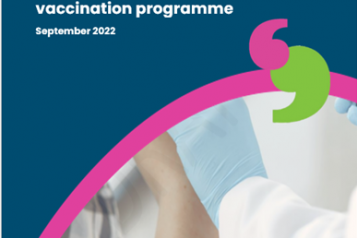Covid Champion update

The Living with Covid Plan and Health and Safety at Work
The latest information we have indicates that COVID-19 infection levels in Sunderland and across the country are falling. However, we continue to see around 100 new cases per day. As such, the virus is still circulating relatively widely.
On 21st February 2022, the Prime Minister announced the government’s Living with Covid Plan. This sets out a significant change in approach to managing the pandemic over the coming weeks. Domestic COVID-19 regulations linked to public freedoms will come to an end and further emphasis will be placed on pharmaceutical interventions such as vaccinations and anti-viral treatments. As the plan progresses, some responsibilities for employers and their staff will remain in place, whilst others will cease.
As a result, the period from now until April 2022 will see a significant transition in ways of managing COVID-19 within workplaces. However, it should be noted that the principles of infection control and management remain the same and can be implemented with or without regulations. To help manage the transition period, we have identified a number of actions you should continue to take to protect yourself, your staff and your customers.
- Encourage all staff to receive vaccination for COVID-19 Vaccination remains our best defence against the virus and it is important that those living and working in Sunderland get all recommended doses for the best protection. Information about eligibility, appointments and walk-in clinics can be found at:
http://www.sunderland.gov.uk/covidvaccine. - Update your health and safety risk assessment, including the risk from COVID-19 in the light of changes to the COVID-19 regulations Your risk assessment should consider the updates set out in this letter. Also consider reasonable adjustments needed for staff and customers with disabilities. Share it with all your staff and keep it updated. Guidance can be found at:
https://www.hse.gov.uk/coronavirus/roadmap-further-guidance.htm
https://www.hse.gov.uk/coronavirus/working-safely/risk-assessment.htm - Staff should stay at home if they have COVID-19 symptoms or are feeling unwell People who have COVID-19 symptoms (however mild), should continue to take tests and stay at home, avoiding contact with other people if testing positive. Though they will not be legally required to self-isolate they should not be encouraged to come to work. This approach will reduce the risk to others. Additionally, if staff feel unwell but do not have COVID-19 symptoms or have taken a COVID-19 test that was negative they should not be encouraged to come to work. They may still have an illness which could be passed on to other others. Many common illnesses, like the flu or the common cold are spread from one person to another when they are in close contact.
- Provide adequate ventilation
You should make sure there is an adequate supply of fresh air to indoor spaces where there are people present. This can be natural ventilation through opening windows, doors and vents, mechanical ventilation using fans and ducts, or a combination of both. In particular, you should identify any poorly ventilated spaces in your premises that are usually occupied and take steps to improve fresh air flow in these areas. In some places, a CO2 monitor can help identify if the space is poorly ventilated. Guidance can be found at:
www.hse.gov.uk/coronavirus/equipment-and-machinery/air-conditioning-and-ventilation/index.htm - Encourage face coverings
The Government advises that people continue to wear face coverings in crowded and enclosed spaces - especially when coming into contact with others they do not usually meet and when rates of transmission are high. Guidance can be found at:
https://www.gov.uk/government/publications/face-coverings-when-to-wear-one-and-how-to-make-your-own/face-coverings-when-to-wear-one-and-how-to-make-your-own - Continue to clean more often
Employers should encourage their staff and customers to continue to wash or sanitise their hands more frequently and follow the “Catch it, Bin it, Kill it” approach:
https://www.england.nhs.uk/south/wp-content/uploads/sites/6/2017/09/catch-bin-kill.pdf Also, it is especially important to regularly clean surfaces that people touch frequently. - Communicate and train
Employers should keep all their staff, contractors, customers and visitors up to date on how they are using and updating safety measures. The most current Working Safely guidance can be found at:
www.gov.uk/guidance/working-safely-during-covid-19/updates
Key Areas of the Living with Covid Plan
The content of the Living with Covid Plan contains the following key areas that businesses should be aware of in the coming days and weeks.
From 24th February 2022:
- People will no longer be legally required to self-isolate if they test positive for COVID-19. However, new guidance will advise people to stay at home and avoid contact with others.
- People will no longer be legally required to self-isolate if they are an unvaccinated close contact of someone who has tested positive. If they are a fully vaccinated contact, they will not be advised to test for 7 days. Alongside this, routine contact tracing will come to an end. Again, revised guidance will set out precautions to enable close contacts to reduce risk to themselves and others.
- Further to the removal of the above requirements, employers may no longer routinely receive notification from their employees when they are unable to work due to being in self-isolation. This is because the legal obligation on employees to notify their employers will also be removed.
- Nationally provided support payments that are made to assist with self-isolation and the inability to work will no longer be provided.
From 24th March 2022:
- COVID-19 provisions within the Statutory Sick Pay and Employment Support Allowance regulations will be removed. These enabled those absent from work after receiving a positive COVID-19 test or being a close contact of a positive case to be eligible for statutory sick pay.
From 01st April 2022:
- The requirement for all employers to explicitly consider COVID-19 in their risk assessments will be removed. Also, existing Working safely during coronavirus (COVID-19) guidance will be replaced with new consolidated public health guidance.
- Current guidance on voluntary COVID-status certification in domestic settings and will be removed and it will no longer be recommended that certain venues use the NHS COVID Pass.
- Free universal asymptomatic and symptomatic testing will no longer be available in England, with a limited free offer to be retained for a small number of at-risk groups. Again, new guidance will be issued to detail which groups will be eligible.
If you have any queries or need further support, the latest national information and guidance can be found at www.gov.uk/coronavirus and www.nhs.uk/coronavirus. Or visit www.sunderland.gov.uk/coronavirus for information about how the latest developments are impacting residents and businesses in Sunderland.


